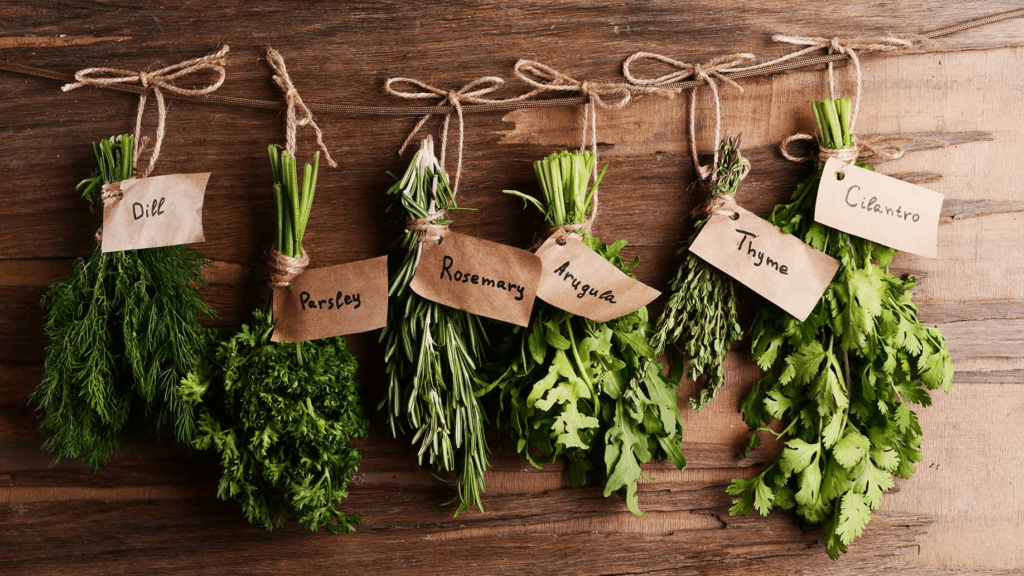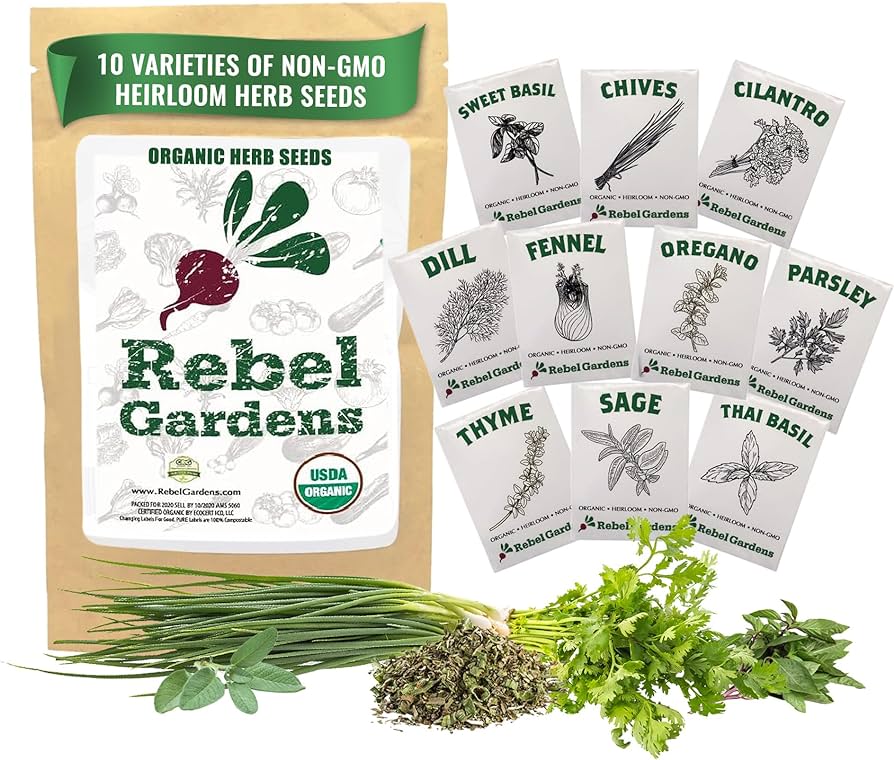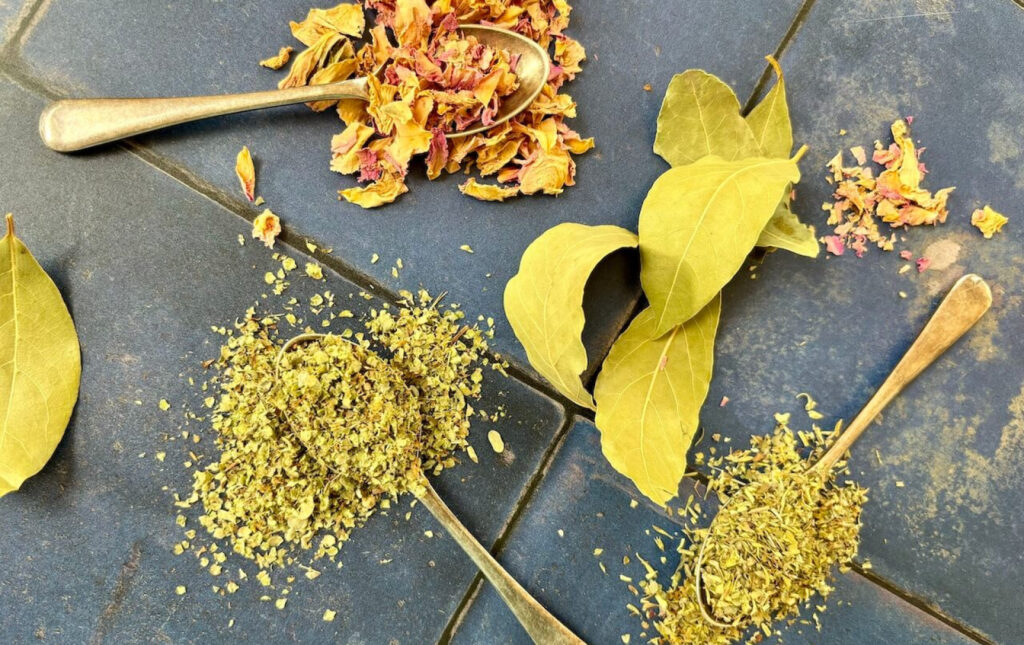In recent years, the demand for organic herbs has surged as individuals become more health-conscious and environmentally aware. This shift in consumer behavior is not merely a trend but a reflection of a broader movement toward sustainable living. Organic herbs, free from synthetic pesticides and herbicides, offer a healthier alternative for those seeking a more natural way to enhance their culinary and wellness experiences.
Organic herb farming prioritizes soil health, biodiversity, and sustainable farming practices. This dedication to ecological balance not only benefits the consumers but also contributes to the overall health of the planet. As we delve into the nuances of buying organic herbs, it’s essential to understand the key factors that make these green alternatives an increasingly popular choice for households worldwide.
If you want to enhance your skin health by consuming organic herbs make sure to consult with the renowned dermatologist Cheyanne Mallas in PA.
Decoding Organic Labels: What Do They Really Mean?

When navigating the green market, consumers often encounter a plethora of labels claiming to signify the organic nature of herbs. However, decoding these labels requires a nuanced understanding of certification standards. The term “organic” is more than just a marketing buzzword; it represents a commitment to farming practices that eschew synthetic inputs.
Look for certifications from reputable organizations such as the USDA or the EU Organic Farming logo. These labels ensure that the herbs are cultivated without the use of synthetic pesticides, herbicides, and genetically modified organisms (GMOs). Additionally, understanding the difference between “100% organic,” “organic,” and “made with organic ingredients” can guide you toward products aligning with your preferences.
Sourcing Locally: A Fresh Approach to Organic Herbs
While the global market provides access to a wide array of organic herbs, sourcing locally adds an extra layer of freshness and supports regional farmers. Local produce is often harvested at its peak ripeness, ensuring optimal flavor and nutritional content. Visit farmers’ markets or join community-supported agriculture (CSA) programs to connect with local herb growers.
By sourcing herbs locally, you contribute to reducing the carbon footprint associated with transportation. Moreover, engaging with local farmers allows you to gain insights into their cultivation methods, fostering a sense of transparency and trust in the origin of your herbs. Building a connection with local farmers not only supports the community but also ensures a more sustainable and responsible supply chain. In fact, exploring unique locally-sourced ingredients like banana extract can further enhance the diverse and eco-friendly nature of your herbal products.
Understanding Seasonality: The Flavorful Impact on Your Plate
Seasonality plays a crucial role in the availability and quality of organic herbs. Each herb has its peak growing season, during which it thrives and develops its fullest flavor profile. Understanding the seasonality of herbs enhances your culinary experience by allowing you to savor them at their freshest.
Experimenting with herbs in their prime season provides a richer and more vibrant taste to your dishes. For example, basil reaches its peak during the warm summer months, imparting a robust and aromatic essence to your favorite recipes. Embracing the ebb and flow of herb seasons not only elevates your culinary creations but also aligns with the natural rhythm of agricultural cycles. Additionally, seeking the assistance of the best company that provides website maintenance services in Green Bay ensures that your online platform stays fresh and optimized, just like the herbs in your kitchen.
Cultivating Your Own Organic Herb Garden: A Green Thumb’s Delight
For those with a penchant for hands-on experiences, cultivating an organic herb garden at home is a rewarding endeavor. Growing herbs in your backyard or on your windowsill not only ensures a fresh and readily available supply but also deepens your connection with the food you consume. Start small with commonly used herbs like basil, mint, and rosemary.
Embrace organic gardening practices by avoiding synthetic fertilizers and pesticides. Instead, opt for natural alternatives like compost and companion planting to enhance the health of your herb garden. Not only does this empower you to have control over the cultivation process, but it also adds a burst of vibrancy to your living space, creating a green oasis right at your fingertips. Additionally, if you’re an automobile enthusiast in Toronto, consider scheduling a vehicle tuneup in Toronto to ensure your car runs smoothly and efficiently, just like your thriving herb garden.
Smart Shopping Habits: Navigating Prices and Packaging
When buying organic herbs, it’s essential to be mindful of pricing and packaging. While organic products may seem more expensive initially, consider the long-term health benefits and the positive impact on the environment. Look for bulk options to reduce packaging waste and consider investing in reusable produce bags to further minimize your ecological footprint. For those seeking an added dimension to their holistic health approach, consider exploring bioidentical hormone replacement therapy.
Explore online platforms and local co-ops for competitive pricing and discounts on organic herbs. Additionally, keep an eye out for sales or promotions, allowing you to stock up on your favorite herbs without breaking the bank. By adopting smart shopping habits, you not only make organic herbs more accessible but also contribute to the growing demand for sustainable and eco-friendly products.
Exploring Unique Organic Herb Varieties: A Culinary Adventure

As you embark on your journey into the realm of organic herbs, consider exploring unique and less commonly known varieties to elevate your culinary creations. Beyond the familiar basil and mint, delve into the world of exotic herbs like lemon balm, shiso, or epazote. These lesser-known herbs can add distinctive flavors and aromas to your dishes, making your culinary adventures all the more exciting. In between savoring the unique tastes of these herbs, take a moment to recharge and reflect on sustainable practices. Perhaps find a quiet spot at an electric vehicle charging station, where you can blend the richness of culinary exploration with environmental consciousness.
Experimenting with diverse herbs not only broadens your palate but also supports biodiversity in agriculture. Local farmers and specialty markets may offer a range of unique organic herbs that you can incorporate into your cooking. By embracing these lesser-known varieties, you contribute to the preservation of traditional and indigenous agricultural practices, fostering a rich tapestry of flavors in the culinary landscape.
If you are planning to start your own herb business, make sure to look for legal help for scaleups in Dubai Middle East. Navigating the regulatory framework and ensuring compliance with local laws is essential for a successful and sustainable venture in this dynamic business landscape.
Herb Pairing Mastery: Creating Harmonious Flavors
Mastering the art of herb pairing is a skill that can elevate your cooking to new heights. While individual herbs bring their own unique characteristics, combining them strategically can create harmonious and complex flavor profiles. Consider pairing the earthiness of rosemary with the citrusy notes of thyme or the sweetness of basil with the savory undertones of oregano. If you want to add a touch of luxury to your dining experience, consider experimenting with herb-infused oils and vinegars or even exploring unique culinary experiences like booking a private dining event where you can rent a jet and enjoy a gourmet meal in the clouds.
Experiment with complementary herb combinations in various dishes, from salads to main courses. Understanding the synergy between different herbs allows you to tailor your culinary creations to your preferences and brings an element of surprise to your meals. Herb pairing is not just a culinary technique; it’s a form of artistic expression that adds depth and nuance to your cooking. As you explore this culinary artistry, consider the precision of your tools, such as the Japanese scissors, to finely cut and enhance the presentation of your freshly picked herbs.
Preserving Freshness: Techniques for Extended Enjoyment
To make the most of your organic herbs, explore preservation techniques that allow you to enjoy their freshness long after the harvest season. Freezing herbs in olive oil or water, creating herb-infused vinegar, or air-drying them are effective methods for preserving their flavors and aromas. These techniques not only extend the shelf life of your herbs but also ensure that you have a readily available supply for year-round cooking. Additionally, when considering outdoor activities, having the right tactical equipment can enhance your overall experience, providing convenience and functionality in various situations.
Preserving herbs at home also reduces food waste and minimizes the need for constant repurchasing. Create your herb blends for specific culinary purposes, such as an Italian herb mix or a bouquet garni for soups and stews. By incorporating the best physiotherapy clinic in Austin into your routine, you not only care for your culinary treasures but also prioritize your physical well-being. Transform your kitchen into a treasure trove of fresh and aromatic organic herbs, ready to enhance any dish, while ensuring you have access to top-notch physiotherapy services for a healthier lifestyle
The Healing Power of Organic Herbs: A Holistic Approach
Beyond their culinary appeal, organic herbs have long been valued for their medicinal properties. Embrace the holistic benefits of herbs by incorporating them into teas, tinctures, or infusions for their therapeutic effects. Chamomile, known for its calming properties, can be brewed into a soothing tea, while peppermint can aid digestion and alleviate discomfort. If your vehicle breaks down on your way to buy organic herbs just contact the best company that provides vehicle towing in NJ for swift assistance.
Explore the world of herbal remedies by cultivating a medicinal herb garden. Include herbs like echinacea, elderberry, and calendula, known for their immune-boosting and anti-inflammatory properties. By integrating these healing herbs into your daily routine, you not only enhance your well-being but also reconnect with age-old traditions of using nature’s gifts for health and vitality. As you stroll through your garden, consider complementing the natural ambiance with designer wood doors, creating a harmonious and aesthetically pleasing space for both healing and relaxation.
From Farm to Table: Participating in Community-Supported Agriculture
Deepen your commitment to sustainable living by engaging in community-supported agriculture (CSA) programs that provide direct support to local farmers. Joining a CSA connects you directly with the source of your organic herbs, fostering a sense of community and shared responsibility for sustainable agriculture. Many CSAs offer herb shares, allowing you to receive a diverse selection of fresh, locally grown herbs regularly. Moreover, in this era of digital convenience, consider exploring an online mall dedicated to eco-friendly products, where you can conveniently find and purchase a wide variety of locally sourced herbs to complement your sustainable lifestyle.
By participating in a CSA, you not only access a variety of organic herbs but also contribute to the financial stability of local farmers. This direct connection with the agricultural community creates a symbiotic relationship that goes beyond a simple consumer-producer dynamic. It’s a tangible way to support sustainable practices and ensure the continued availability of high-quality organic herbs in your local area. Moreover, if you are located in North Carolina and looking to enhance the infrastructure of your property, consider parking lot paving in North Carolina to improve the functionality and aesthetic appeal of your surroundings.
Ethical Considerations: Supporting Fair Trade and Ethical Practices
As conscious consumers, it’s crucial to extend our ethical considerations beyond organic farming to include fair trade practices. Look for brands and producers that prioritize fair wages, safe working conditions, and ethical treatment of workers throughout the supply chain. Choosing herbs that bear fair trade certifications ensures that your purchase contributes to the well-being of the communities involved in herb cultivation.
Supporting fair trade also promotes social and economic equity in the global herb trade. By being mindful of the human impact behind the herbs you purchase, you become an advocate for ethical practices in agriculture. This holistic approach to herb consumption aligns with the principles of responsible and conscientious living, creating a positive impact on both individuals and communities involved in herb production. Additionally, for those seeking a convenient and enjoyable way to incorporate herbs into their daily routine, consider exploring the creatine monohydrate gummies shop for a tasty and health-conscious alternative.
The Future of Organic Herbs: Innovations and Sustainable Practices
As technology continues to advance, the future of organic herb cultivation holds exciting possibilities. Explore innovations such as vertical farming, hydroponics, and aquaponics, which offer sustainable alternatives to traditional soil-based agriculture. These methods not only maximize space and resources but also minimize environmental impact, paving the way for more efficient and eco-friendly herb production.
Stay informed about emerging technologies and practices in organic farming, from precision agriculture to blockchain traceability. Being aware of these advancements allows you to make informed choices that align with the latest in sustainable agriculture. By staying at the forefront of these innovations, you actively contribute to the evolution of organic herb cultivation, shaping a greener and more sustainable future for herb enthusiasts worldwide.
Culinary Delights: Showcasing Organic Herbs in Everyday Recipes

Transform your everyday meals into culinary delights by incorporating organic herbs into a variety of recipes. From simple salads to complex main courses, herbs can elevate the flavor profile of any dish. Experiment with herb-infused oils, compound butter, or herb-packed marinades to add depth and complexity to your cooking.
Create a signature herb blend that reflects your culinary style and use it as a go-to seasoning for various dishes. For example, a Mediterranean-inspired blend of oregano, thyme, and rosemary can enhance the flavors of roasted vegetables or grilled meats. By showcasing the versatility of organic herbs in your daily cooking, you not only savor delicious meals but also inspire others to explore the world of culinary possibilities that these herbs offer.
Closing Thoughts: Nurturing a Lifelong Relationship with Organic Herbs
In conclusion, the journey into the world of organic herbs extends far beyond the initial purchase or cultivation. It evolves into a lifelong relationship with flavors, aromas, and the profound impact of conscious choices on personal well-being and the planet. From exploring unique varieties to mastering herb pairings, preserving freshness, and embracing the healing power of herbs, each aspect contributes to a holistic and enriching experience.
As you continue to explore the vast and diverse universe of organic herbs, remember that your choices matter. Whether you’re cultivating a home herb garden, participating in community-supported agriculture, or advocating for ethical practices, you play a vital role in shaping the future of herb consumption. Let your journey be guided by a spirit of curiosity, responsibility, and a deep appreciation for the beauty and bounty that organic herbs bring to our tables and lives.
